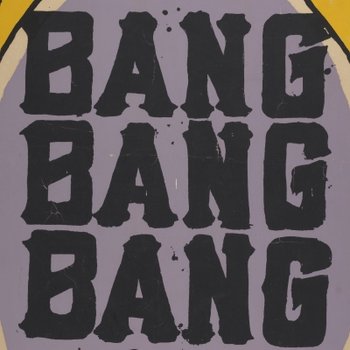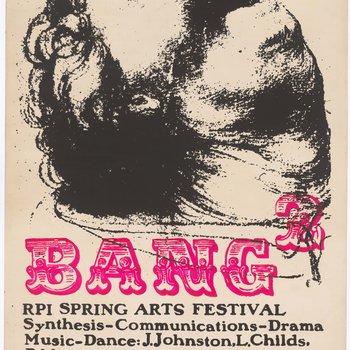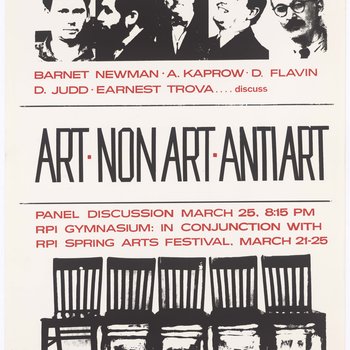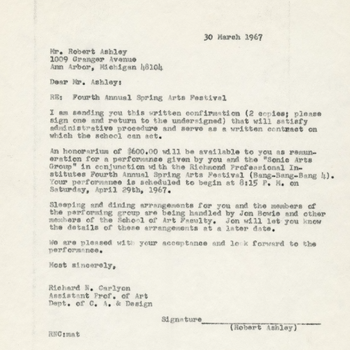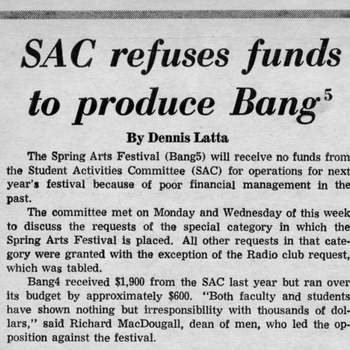Bang Arts Festival, 1964-1967
The Bang Arts Festival, also known as the Spring Arts Festival, occurred four times at the Richmond Professional Institute (RPI) between 1964 and 1967. The festival was created by RPI faculty in the Communication Arts & Design department. James Bumgardner and Jonathan Bowie were co-directors, along with Richard Carlyon, Jewett Campbell, and Willard Pilchard. Fine Arts department faculty member Bernard Martin, and students William Livingston and Carol Sutton, also participated. The goals of the festival were to bring contemporary art, music, theater, dance, and more to Richmond, as well as showcase artists from around the country.
The festival brought significant artists and art professionals to Richmond, including: musicians Jesse Fuller, John Cage, David Tudor, Robert Ashley, Gordon Mumma, David Behrman, Alvin Lucier, Bill Dixon, and Alan Silva; visual artists Dan Flavin, Donald Judd, Allan Kaprow, Barnett Newman, Ernest Trova, Larry Rivers, Roy Lichtenstein, Thomas B. Hess, and Larry Rivers; dancers Judith Dunn, Twyla Tharp, Yvonne Rainer, Theresa Dickinson, and Lucinda Childs; and curator Alan R. Solomon.
Events at the festival included dance pieces, panels featuring artists and critics, film festivals, theater performances, and more. RPI students participated in events throughout, and also attended events alongside RPI faculty, staff, and Richmond community members.
This exhibit brings together materials from the Richard Carlyon papers, the student newspaper Proscript, and the yearbook Cobblestone housed in Special Collections and Archives at James Branch Cabell Library related to the Bang Arts Festival and presents them chronologically to narrate the lifespan of the festival. Following sections for each year of the festival below, there are three items which outline the end of the Bang Arts Festival, which lost funding during the 1967-1968 academic year.
Please note: Digital Collections come from a broad range of sources, including materials that are offensive or contain negative stereotypes. VCU Libraries provides access to these items to support research and inquiry.

